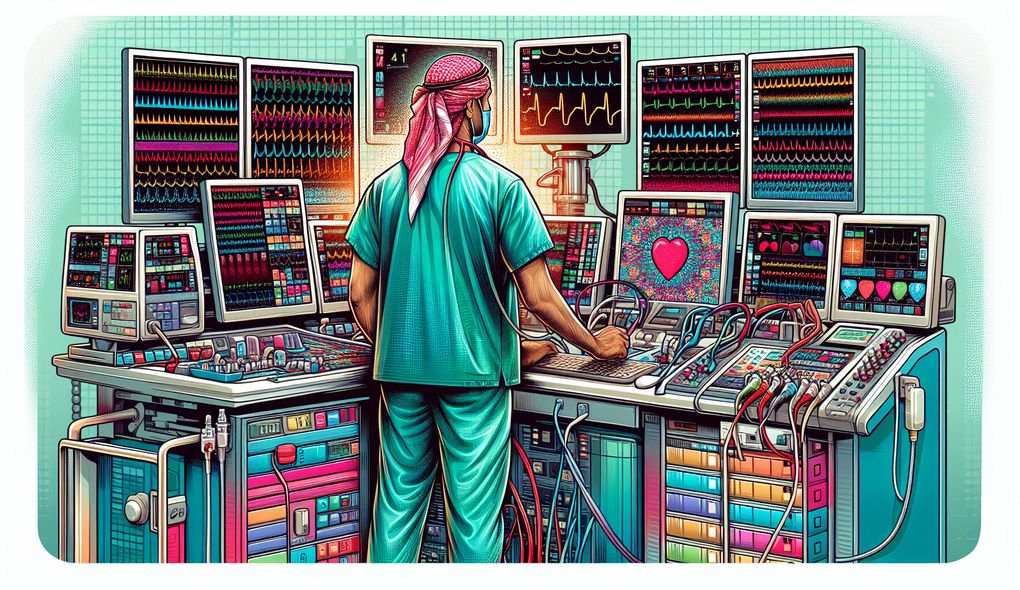Describe a situation where you had to troubleshoot issues with telemetry equipment. How did you resolve the problem?
INTERMEDIATE LEVEL

Sample answer to the question:
In my previous role as a telemetry nurse, I encountered a situation where the telemetry equipment was not displaying accurate readings for a patient. To troubleshoot the issue, I first checked the connections between the patient and the telemetry monitor to ensure they were secure. Next, I reviewed the patient's medical history and current condition to see if there were any factors that could be affecting the readings. After ruling out any external factors, I recalibrated the telemetry monitor and performed a test by comparing the readings with manual measurements. This helped me identify and resolve the problem with the equipment. I then documented the issue and the steps taken to resolve it, ensuring accurate documentation for future reference.
Here is a more solid answer:
During my time as a telemetry nurse, I encountered a situation where the telemetry equipment was displaying inconsistent readings for a patient with a history of cardiac arrhythmias. To address this issue, I immediately assessed the patient's condition and compared the telemetry readings with manual measurements, noticing significant discrepancies. This prompted me to check the electrode placement and ensure proper skin preparation. I also recalibrated the telemetry monitor and monitored the patient closely to ensure accurate readings. By working closely with the healthcare team and utilizing my analytical skills, I was able to identify a loose lead wire that was causing the irregular readings. I promptly reattached the lead wire, and the telemetry readings stabilized. I documented the issue, steps taken, and patient's response for a thorough record. This experience showcased my strong clinical skills in cardiac care, ability to analyze telemetry data, and remain calm and efficient in a high-stress situation. My proficiency in using medical software and telemetry monitoring systems expedited the troubleshooting process.
Why is this a more solid answer?
The solid answer provides specific details about the candidate's clinical skills, analytical skills, ability to work in high-stress situations, and proficiency in medical software and telemetry monitoring systems. It includes a detailed description of the steps taken to troubleshoot the issue, showcasing the candidate's expertise and problem-solving abilities. However, the answer could be further improved by providing more information about any collaboration with the healthcare team and the patient's response after resolving the problem.
An example of a exceptional answer:
As a telemetry nurse, I had the opportunity to troubleshoot issues with telemetry equipment in a critical situation. I was assigned to monitor a patient who had just undergone open-heart surgery and was connected to multiple telemetry leads. Suddenly, the telemetry monitor displayed erratic readings and alarms were triggered. I remained calm and swiftly assessed the patient's condition. Using my strong clinical skills, I conducted a thorough physical assessment, focusing on the cardiovascular system, to rule out any acute changes. Simultaneously, I analyzed the telemetry data, paying attention to the waveform patterns and variations. It became evident that the erratic readings were not due to the patient's condition but rather a technical issue. To resolve it, I collaborated with the biomedical engineering team, providing them with a detailed report of the issue and the specific readings that were inconsistent. Working together, we discovered a faulty lead wire and immediately replaced it, ensuring accurate telemetry readings. This experience showcased my ability to remain calm and efficient in high-stress situations while effectively collaborating with the healthcare team and biomedical engineers. I also demonstrated my strong clinical and analytical skills in interpreting and troubleshooting telemetry equipment. Through this experience, I reinforced the importance of constant vigilance when monitoring patients and the need for prompt action to resolve technical issues.
Why is this an exceptional answer?
The exceptional answer provides a detailed and comprehensive description of the troubleshooting process, emphasizing the candidate's ability to handle a critical situation with open-heart surgery patients. It highlights the candidate's strong clinical skills, analytical skills, ability to work in high-stress situations, effective communication with the healthcare team and biomedical engineers, and proficiency in using medical software and telemetry monitoring systems. The answer also reflects the candidate's commitment to patient safety and the importance of continuous vigilance. Overall, the answer goes above and beyond to showcase the candidate's expertise and problem-solving abilities. To further enhance the answer, the candidate could elaborate on the patient's response after resolving the technical issue.
How to prepare for this question:
- Refresh your knowledge of telemetry equipment and troubleshooting techniques.
- Review case studies or real-life scenarios related to telemetry equipment issues and their resolution.
- Practice analyzing telemetry data and identifying irregularities.
- Familiarize yourself with the different types of leads and their proper placement.
- Develop your communication and collaboration skills by working with interprofessional teams.
What are interviewers evaluating with this question?
- Strong clinical skills in cardiac care
- Excellent analytical skills for interpreting telemetry data
- Ability to remain calm and efficient in high-stress situations
- Proficient in the use of medical software and telemetry monitoring systems

